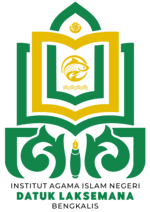Peningkatan Hasil Belajar Matematika Melalui Model Koperatif Tipe Make A Match Materi Penjumlahan dan Pengurangan Bilangan sampai 20 pada Siswa Kelas I SDN 9 Bengkalis Kecamatan Bengkalis
DOI:
https://doi.org/10.56633/jkp.v13i2.31Abstract
This class action research done during the II cycle, each cycle consists of two meetings with each stage of the cycle is planning, implementation, observation and reflection. The subject of his research is the grade 1 students with the number of 26 students. Research variable is the result of student learning. The technique of data collection using the test and nontes. Analysis of the data using quantitative and qualitative research. The results of research on student learning outcomes pre cycle of visible very low where some of the students in grade 1 SD Negeri 9 Bengkalis has not yet reached the learning in line with the. Only 13 students (50%) of 26 students thoroughly learn or achieve KKM while 13 students (50% ) students have not completed learn. Later in the cycle of I using the model of teaching cooperatively make a match has been able to improve students thoroughly learn from 26 students only 16 people (61%) who experience learning in line with the on the cycle I meeting 1 and on the cycle I meeting 2 from 26 17 people (69%) who experience learning in line with the. After continued with the cycle II meeting 1 have increased namely18 students (71%) experience learning in line with how much more the cycle II meetings 2 experienced a significant increase in the 24 students (94%) has completed study and only 2 students who have not yet reached the learning in line with the. From the results it can be concluded that the implementation of the learning model koperati make a match can improve the results of learning mathematics students in grade 1 matter and subtraction sums numbers until 20 in SD Negeri 9 Bengkalis.Downloads
Published
2017-12-18
Issue
Section
Articles
License
Authors who publish with this journal agree to the following terms:
- Authors retain copyright and grant the journal right of first publication with the work simultaneously licensed under a Creative Commons Attribution-ShareAlike 4.0 International License. that allows others to share the work with an acknowledgement of the work's authorship and initial publication in this journal.
- Authors are able to enter into separate, additional contractual arrangements for the non-exclusive distribution of the journal's published version of the work (e.g., post it to an institutional repository or publish it in a book), with an acknowledgement of its initial publication in this journal.
- Authors are permitted and encouraged to post their work online (e.g., in institutional repositories or on their website) prior to and during the submission process, as it can lead to productive exchanges, as well as earlier and greater citation of published work (See The Effect of Open Access).






